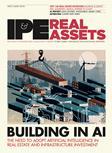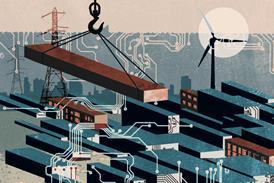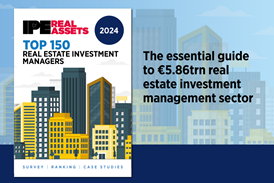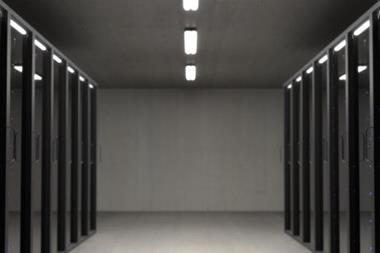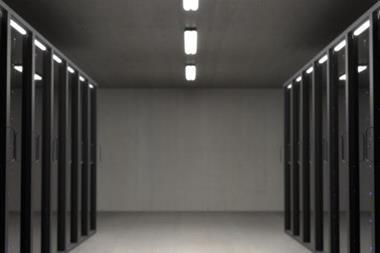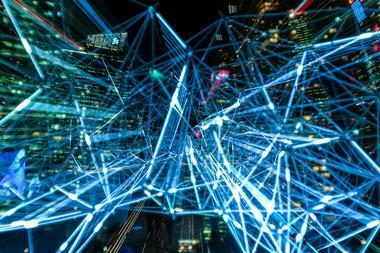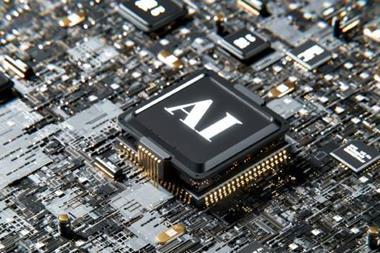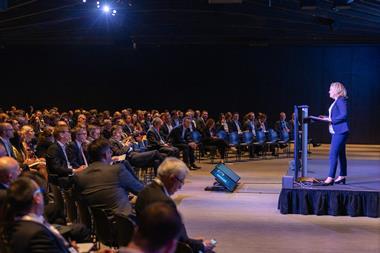Christopher Walker explores what the Chinese AI breakthrough means for real assets investors
Real assets investors have been navigating an increasingly fast-changing and uncertain world. But in the past couple of years they have at least been able to lean on the conviction that the revolution in artificial intelligence (AI) could only further turbocharge the need for hyperscale data centres and energy-transition infrastructure.
That conviction crumbled yesterday when markets realised that a previously little-known Chinese AI application DeepSeek could outpace its American rivals – while, crucially, implying this could be done without huge investment in data and power infrastructure.
As one data-centre investor, speaking under anonymity, said to 91��ý����: “I feel like the sky just fell in. What the hell do we do next?”
Orthodox thinking can be summed up as follows. Generative AI is fast changing the world economy – adding up to $4.4trn (€4.2trn) in economic value, according to McKinsey. Because the processing power of AI applications is considerably greater than existing applications such as a Google Search, the consequent explosion in demand for computing power is a huge demand driver for data centres.
This in turn feeds through to energy generation and all the hardware around it. As Ulrik Fugmann has said recently, with the “build-out of data centres to support the development of AI, there is an increasing need for low-cost and reliable energy sources”.
Then along comes DeepSeek, an AI lab in Hangzhou, founded by hedge fund manager Liang Wenfeng. Last week, it released its latest DeepSeek R1 new large language model, and a weekend of techies playing with it led to claims it knocked the socks off existing competitors.
“Imagine running ChatGPT-level AI on your gaming computer instead of a data centre. That’s not science fiction anymore – that’s what DeepSeek achieved.”
Morgan Brown
The company said it had spent just $5.6m on computing power, compared with the billions of dollars US companies are spending. , AI investing by US tech companies hit $224bn last year and is expected to reach $280bn in 2025. Last week, US President Donald Trump announced Stargate, a $500bn joint venture involving OpenAi, SoftBank and Oracle, to build more data centres.
In the middle of a looming trade war between China and the US, DeepSeek certainly has major macro implications. Stargate was billed as a strategy to outpace rival nations in the business-critical technology. Experts are now asking how the Chinese have done this when the US has restricted their access to chips?
Marc Andreesen, the venture capital investor, called it “AI’s Sputnik moment”, alluding to the shock the 1957 Soviet space breakthrough had on the US. Trump admitted it was “a wake-up call” for the US tech industry.
‘This could reshape the whole AI industry’
To understand the implications of DeepSeek, investors need to get deep into the weeds of the tech breakthrough. In a recently issued statement, Morgan Brown, vice president of AI products at Dropbox, talks of DeepSeek reducing AI training costs “by employing innovative techniques”, such as “low-rank key-value (KV) joint compression, leading to a 95% reduction in GPU usage”. Other advances “significantly cuts down on computational resources needed”, he says.
In layman’s terms, DeepSeek has gone deeper in reprogramming the code language than ever thought possible, circumventing US chip restrictions. “Imagine running ChatGPT-level AI on your gaming computer instead of a data centre,” says Brown. “That’s not science fiction anymore – that’s what DeepSeek achieved.”
Brown thinks “this could reshape the whole AI industry” and suggests that chipmaker Nvidia, the world’s largest company, needs to rethink its business model. The stock plunged 17% on Monday, the highest value stock collapse in Wall Street history.
There are many questions that need to be answered – and fast. Did China really achieve all it said it achieved, working with basic chips and spending only $5.7m to develop this model rather than the normal nine-figure sums? One source says off the record: “Just remember the Soviets used mirrors on the booster rocket to deceive the Americans into thinking Sputnik was bigger than it was.”
The jury is still out on chip implications. Generative AI has two key phases: ‘training’ and ‘inference’. The training phase has traditionally required substantial amounts of data – roughly more than 1trn parameters – to teach the AI models how to process data and generate predictions. That may have just changed dramatically.
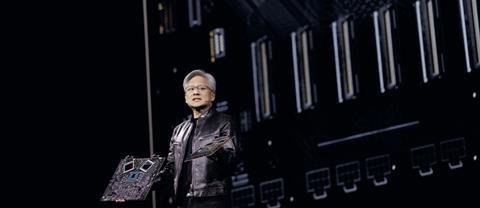
The inference phase, which is still evolving, requires low latency, or reduced time in relaying information from server to end user. Nvidia issued a statement pointing out that DeepSeek still requires inference, servicing new users, which “requires significant numbers of Nvidia GPUs and high-performance networking”. DeepSeek crashed on Monday indicating possible limitations.
For real asset investors, the burning question is what does all this mean for energy demand and data centres? “DeepSeek’s approach has the potential to disrupt the AI market by lowering entry barriers, thereby increasing competition and reducing the dependence on large-scale data centres and expensive GPUs”, Brown says. “Cloud providers might need to rethink their pricing.”
Energy stocks on Wall Street fell sharply – Constellation Energy by 20%, Talen Energy by 22% and Vistra Corp by 29%. As one source says off the record, “who needs a new nuclear power station if you can run this on your laptop”.
Many investors are clinging to Jevon’s Paradox – a reminder that increases in efficiency do not always lead to a reduction in demand. In the nineteenth century, steam engines became more energy efficient, but demand for energy actually continued to surge in response to greater usage. Certainly, the DeepSeek breakthrough is likely to further accelerate AI development and adoption.
But until the full implications of the DeepSeek episode have been processed, investors are expected to be in lockdown mode.

